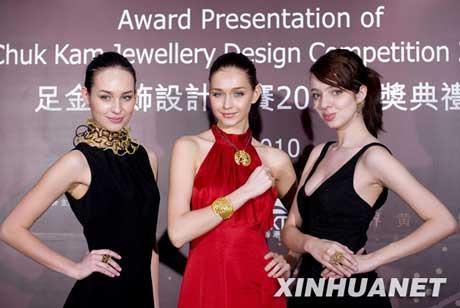| Videos | • Latest |
|
• Feature | • Sports | • Your Videos |
Jewelry sales buoyant at Hong Kong show

A record-breaking 26 hundred exhibitors from 44 countries and regions are take part this year, that's up 12 percent on 2009 thanks to the improving outlook.
The five-day event features fine and antique jewelry, as well as pieces made from jade, diamonds, precious and semi-precious stones and pearls.
Koo Tong Fat, an Executive Committee Member from the Hong Kong Jewelers' and Goldsmiths' Association Limited, says Hong Kong's market recovered quickly from the financial crisis in the second half of last year due to the strong buying power from the Chinese mainland.
Koo Tong Fat said, "Actually there is strong purchasing power from Chinese mainland, there were more tourists who were largely from Chinese mainland. Other customers from South East Asia, Europe and America increased as well in the second half of last year, so sales were good."
But Koo says the export business will continue to be affected as the economy in the US and Europe, the main exporters for Hong Kong are still recovering.
The financial meltdown forced many people to cut back on their non-essential spending on luxury goods such as jewelry.
Aaron Shum, a long-time supporter of the show, has high hopes for the industry in 2010.
Aaron Shum said, "I am very optimistic. Very simply, jewelry is not a luxury good as seen in other people's eyes. We see it as a necessity. At least half of the world needs jewelry, half of the population are women who need jewelry. After more than a year, the importers who bought less last year are running out of stock already, as this is a necessity, imports will increase as people must buy it."
In 2009, Chinese mainland was the only market in the world to see an increase in the demand for gold.
Sales increased by six percent last year in Chinese mainland while in the rest of the world they fell by a fifth.
 0
0 








Go to Forum >>0 Comments